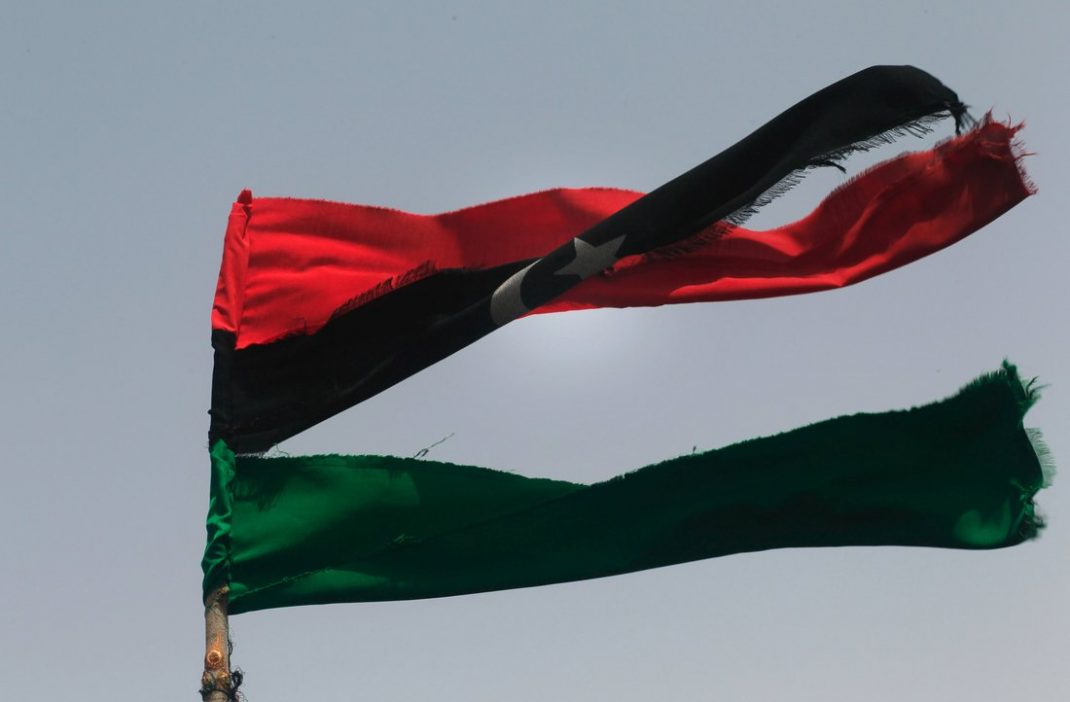
Three years after the Libyan Political Agreement heralded an ostensible unity deal, the war-torn North African country remains as divided as ever.
Libya still has two rival parliaments, and the only meaningful difference after all this time is that the country now has a different internationally recognized prime minister (Fayez al-Sarraj) in Tripoli.
The country remains insecure, and the Islamic State is proving to be a particularly potent threat this year with attacks on the electoral commission headquarters and national oil companies.
And other militias continue to run rampant in areas such as Tripoli, where they control large swaths of territory.
The Big Picture
On Dec. 17, 2015, Libya’s rival parties signed the Libyan Political Agreement. It was designed to resolve political conflict and unify the two opposing parliaments, one in the east (Tobruk) and the other in the west (Tripoli), in order to combat the Islamic State and other militant groups in the country.
But competition among European powers in Libya — specifically France and Italy — will continue to undermine attempts to solve the country’s political crises.
Libya, however, could reach a crossroads in 2019. Over the past 18 months, the international community, particularly the United Nations, France and Italy, has pushed hard to reboot the country’s political agreement.
And in February 2019, Libya plans to finally hold a referendum on a new constitution, potentially paving the way for eventual national elections that could finally move the needle toward true unity.
Divisions Run Deep
Despite failing to achieve some of the political agreement’s lofty goals, the country has enjoyed some success in recent years. Oil production, which fell below 300,000 barrels per day in August 2016, has recovered to 1.1 million bpd after the ouster of the Petroleum Facilities Guard from the main export terminals in the east.
The al-Bunyan al-Marsous militias also succeeded in dislodging the Islamic State from its stronghold in Sirte, while the Libyan National Army has largely defeated Islamist militants in Benghazi; now, they appear close to accomplishing the same in Darnah.
The problem is that there is no end to the rivalries that have prevented the various factions from achieving a lasting political agreement.
The country’s capital is dominated by several large militias that nominally fall under the control of the government in Tripoli, yet answer only to themselves, even as they draw lucrative salaries from the government.
Many have little incentive to demobilize unless they become an official part of the national (or Tripoli-based) police force — and have the opportunity to avail themselves of the accompanying spoils.
Hifter Looms Large
Field Marshal Khalifa Hifter, a major power broker in the east, remains a controversial figure, and the divisions between him and rival militias run deep.
His foreign backers have been trying to unify and mold his Libyan National Army into a bona fide national army instead of what it is now: a collection of tribal militias with limited control beyond Libya’s east apart from several remote air installations.
But for many in Libya’s west from the Justice and Construction Party (the Muslim Brotherhood’s Libyan outfit) or for Misratan representatives who previously allied with Islamists, it is difficult to conceive of Hifter as the country’s top military commander — or even a presidential aspirant — given his tendency to tar all Islamists as jihadists.
Hifter’s presence in the country’s west and south has been expanding, attracting the attention of Italy, the United States and Russia; he already has the long-standing support of France, the United Arab Emirates and Egypt.
For the West, Hifter has become indispensable for any solution, but he could hurt his reputation if he impatiently launches an offensive on Tripoli, which would unify his foes against him.
In addition, the divisions are not just national but regional as well, because western Libya, also known as Tripolitania, remains split itself.
The head of the State Council, which operates functionally as a parliament in Tripoli, is a member of the Justice and Construction Party.
Meanwhile, there are also rivalries among hard-line Islamist, Misratan, Tripolitanian and other smaller militias that have prevented them from achieving a united political front.
The status quo of a divided Libya is unlikely to change anytime soon. But should Libya actually hold a referendum and national elections, the motivations for many of the country’s parties, power brokers and militias could change.
And depending on the prospective election’s outcome, the balance of power in Libya might be set for a shift — for better or for worse.
_____________




